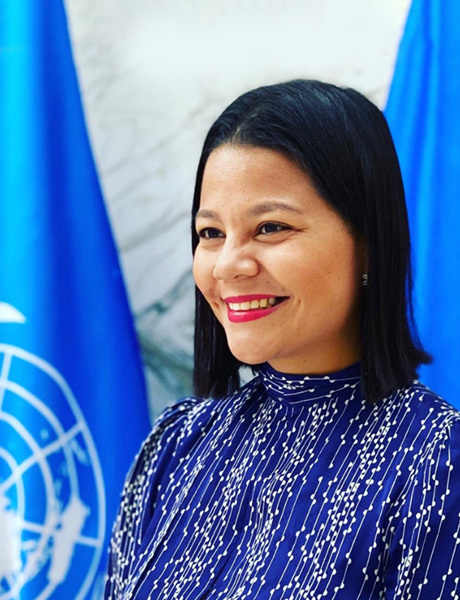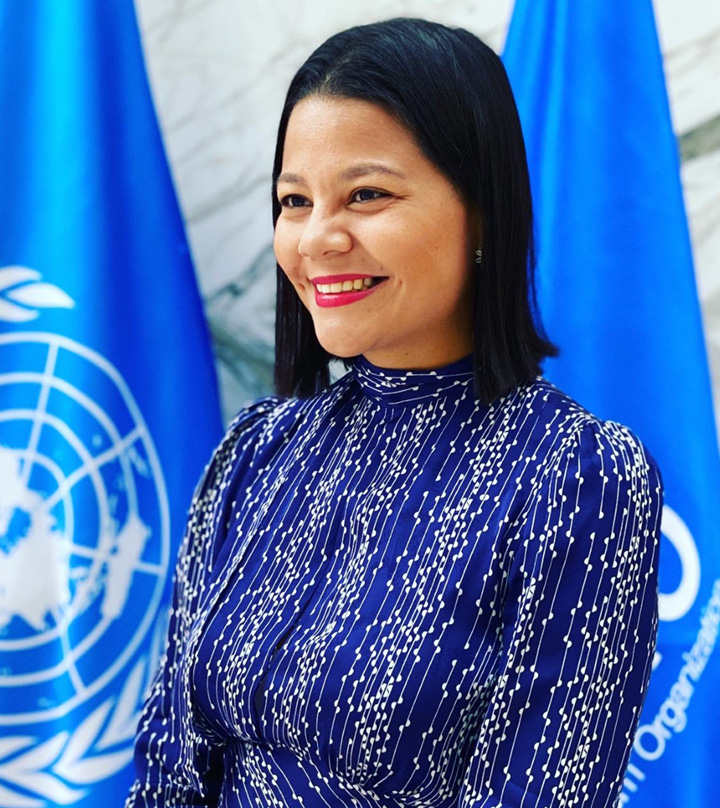



Global tourism and hospitality can innovate its way back to full strength – and public/private partnerships, investor appetite, access to education and a focus on sustainability will deliver the prize. These messages came loud and clear when we spoke to Natalia Bayona, who is Director of Innovation, Education and Investments at the UN World Tourism Organization (UNWTO)…
One of the more rewarding projects we became involved with last year was the Hospitality Challenge. This global competition for new ideas and innovations in hospitality was a co-initiative of our parent group, Sommet Education, and the UN World Tourism Organization (UNWTO).
The 30 selected finalists – who each receive a postgraduate scholarship to Glion or a sister school – represent a fantastic array of innovative products, services and solutions, almost all of which make use of digital technology in some form or another.
Natalia Bayona, as Director of Innovation, Education and Investments at UNWTO, has been closely involved throughout the life of the competition, which is one of around a dozen the organization has staged throughout the past three years. In total, these have attracted some 10,000 entrants from 150 countries – proof if it were needed of hospitality’s global appeal and potential for digital disruption.
“Innovation is here to stay, and if digital transformation was a priority in tourism and hospitality before Covid, you can now say it is obligatory,” she says. “As a sector, all the challenges and opportunities we had before are accelerated today; and this is because global tourism has a unique moment in which to come back more sustainably.”

“We can’t talk about tourism without talking about sustainability. But the good news is that with technology and innovation we have the power to create a better model for everybody – for businesses, communities, rural development and some of the more vulnerable sectors of our economies and societies.”
Natalia Bayona
The five ‘essentials’ for future success
The desire and creativity are there – as evidenced by the extraordinary popularity of competitions like the Hospitality Challenge. Now, in Natalia’s view, it’s a case of harnessing five other essential elements: partnerships for innovation, education, investment, sustainability and confidence.
“First of all, we need to foster and promote a tourism innovation ecosystem, in which the big corporates and SMEs can work more closely together with start-ups that offer new and innovative solutions,” she explains.
On the education side, Natalia wants the focus to be on upskilling; noting that although tourism is a major employer worldwide, too many of those working in the industry – especially women and young people – have only secondary skills.
A desire to change this picture is driving a new UNWTO initiative for which we are proud to be among the partners: the Tourism Online Academy. The Academy will feature a portfolio of tourism and hospitality related online courses, which individuals can study in their own time and, once successfully completed, will earn a certificate from a globally-recognized institution like Glion or equivalent.
“It’s about providing good quality education at scale, delivered by world-leading institutions and carrying the stamp of the United Nations. Our aim is to train around 30,000 individuals in our first year, which we can then scale up by adding new course content and also by translating the courses into a variety of languages,” says Natalia.
In the area of investment, it’s not so much a case of finding the money – between 2010 and 2019 Natalia estimates that more than $455 billion of venture capital was invested in travel and tourism – as directing it to the most deserving recipients.
“There’s been a big flow of capital into the US and China, but we want to encourage our partner investors to look to other regions beyond the most mature markets,” she continues.
“We know that investors are increasingly focused on aspects such as sustainability, social impact, climate change and good governance. So we are working with other multinational organizations to develop different programs that will support ‘green’ investments in tourism.”

No return to overtourism
Outside of its investor appeal, sustainability is of course the big watchword throughout the industry. Amid widespread concerns about a return to overtourism in certain pre-Covid hot spots, Natalia believes this is a unique opportunity to correct the mistakes of the past.
“We can’t talk about tourism without talking about sustainability. But the good news is that with technology and innovation we have the power to create a better model for everybody – for businesses, communities, rural development and some of the more vulnerable sectors of our economies and societies.
“For example, we could use technology to set and monitor capacity limits for the popular tourist attractions. And we have the opportunity to work with governments on common frameworks and guidelines, so that tourism can return in a responsible manner that gets back to its essence as a source of education, knowledge, culture and networking.
“Once international travel is freed up, there will be an obvious temptation for destinations and resorts to try to scale up rapidly, in order to recover lost revenue. But that’s a temptation they need to resist, because this approach is not going to recover their ‘license to operate’ among local communities and other stakeholders.”
Last but not least among the challenges for tourism is something that won’t be solved overnight but which is nonetheless crucial: restoring consumer confidence. Here, Natalia thinks the power of social networks – especially newer platforms such as Clubhouse – will have a major part to play.
“We need to engage; and when we do we need to be very strategic with our messaging, because the pandemic has made it even harder to get your voice heard amid the communication buzz.
“At a global level, we need to align efforts between governments to create a common framework for restoring confidence. Then we can develop strong communications and campaigns that will deliver it.”
Up for the challenge
So, plenty of challenges ahead for the industry as well as the businesses (and jobs) it sustains. However, as shown by the response to the Hospitality Challenge, the disruptors, innovators and radical thinkers across the world do not lack ambition to step up and meet them.
Neither has our appetite for travel dimmed as we’ve spent months in enforced inertia due to Covid-19 lockdowns.
“If anything, this pandemic has helped us become even more conscious of the benefits of travelling, of liberty and of the pursuit of memorable experiences,” Natalia concludes. “So I am positive that when the door is open again we will see tourism take off. The only difference may be that we will all be that little more conscious of how lucky we are to travel, and of our responsibilities to do so in the most sustainable manner possible.”
Photo credits:
Main image: Koukichi Takahashi on Unsplash
Road sign image: Pablo García Saldaña on Unsplash
Be a hospitality innovator
Our Master’s in Hospitality, Entrepreneurship and Innovation teaches the A-to-Z of entrepreneurship.

















